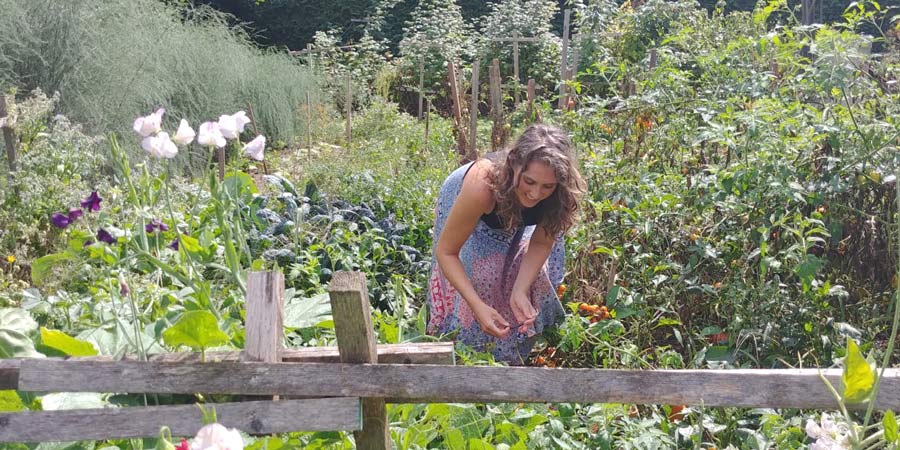CENTRE WELLINGTON – If your lettuce has bolted, if your radishes have gone to seed – do not despair. Even if you can’t eat the produce this year, there’s value in collecting the seeds.
“Seeds are free and they’re in your backyard. Just collect them,” says Kat Granger, owner of Seeds of Imbolc in Fergus. “There is amazing abundance all around us.”
Granger grows plants specifically for the seeds, which she collects, dries, stores and sells to backyard gardeners in subsequent years.
She said seeds adapt to the climate where they originate, so saving seeds from your own garden and then planting them the next year increases the odds of them not only surviving, but flourishing.
“The more you save and replant, the more the seed adapts to your own garden,” she said.
She chooses heirloom or varieties of plants that have not been genetically modified for the best result.
“Hybridized seeds are not genetically stable,” she said. “You can save the seeds but next year, you don’t know what you’ll get. Over time genetics will unravel.”
The same is true of roots and tubers. Granger has started growing dahlias and selling the tubers.
“What I’m trying to do is create a Canadian source,” she said. “Once you get into seeds, you realize how unendingly fascinating they are. It opens a whole new world to gardening.”
Karry Sawatsky is a hobby gardener in Elora who realized she was spending a few hundred dollars on seeds in the spring, and then yanking out the vegetables that had bolted as if they were weeds.
She’d sometimes save seeds for herself or to swap with friends but two years ago had an ‘aha’ moment and formed the Elora Community Seed Exchange.
People can mail collected seeds to her, she organizes and compiles a list, and then they can place orders for the next season from the available selection.
“The seed swaps have been a huge success,” she said. “People can try growing local seeds that are already used to the local soil and climate. There is also access to varieties of seeds you might not find at (big box stores).
“In the big food security picture, I think people should have access to food at a low cost. This empowers people to grow their own food. It’s an essential skill.”
Some plants are easier to collect seeds from than others. Sawatsky puts peas, beans, radishes, tomatoes, peppers and lettuce on the easy list.
Harvest seeds a little later in the season than you would the ripe produce, she says. Pea and bean pods should be dry and papery for example.
Tomato seeds need to be fermented before they are stored. To do this, squeeze the seeds from the ripe tomato into a jar. Add water, leave for about a week, pour off the scum, add fresh water, and repeat until the water remains clear. Then spread the seeds out and let them dry completely.
Seeds can then be stored in a ziplock bag or envelope. Be sure to label those packages, including the seed type, where it was collected, the year and month it was collected and any notes about growing or the specific variety.
Store in a cool dry place over winter safe from frost and critters.
Sawatsky recommends storing herb, vegetable and flower seeds separate from each other.
For information about ordering seeds from Granger, visit https://seedsofimbolc.ca.
For information about the seed exchange, visit https://www.moderndeathcare.ca/event-info/community-seed-exchange.




